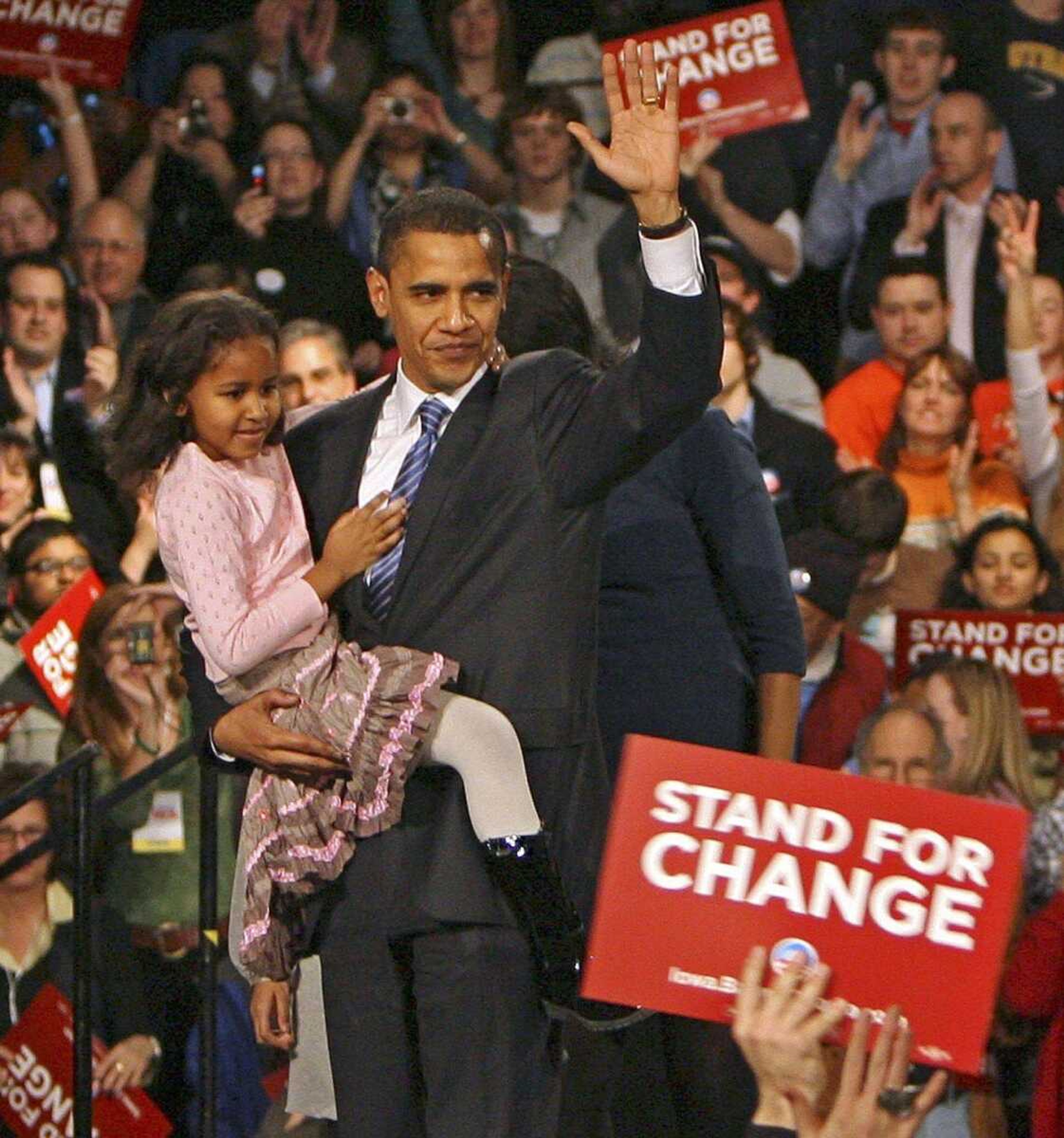In twisting Democratic race, once-unstoppable Clinton struggles to overcome Obamania
WASHINGTON -- A year ago, Hillary Rodham Clinton was joshing about whether she could appoint her husband secretary of state when she became president, and Barack Obama was urging a throng to be realistic about his own chances. "Let's face it," he said. "The novelty's going to wear off."...
WASHINGTON -- A year ago, Hillary Rodham Clinton was joshing about whether she could appoint her husband secretary of state when she became president, and Barack Obama was urging a throng to be realistic about his own chances. "Let's face it," he said. "The novelty's going to wear off."
But a funny thing happened on the way to the Democratic Convention.
The Democratic presidential race took so many twists that close observers might have needed a chiropractor to follow it. And now Clinton, once the instant favorite in a crowded field of candidates, is struggling to overcome a daunting wave of Obamania.
"There's a problem with inevitability," said Dick Harpootlian, a former South Carolina party chairman who supports Obama. "It rarely proves to be true."
When Clinton joined the race in January 2007 with a Webcast from her living room couch, the notion of a former first lady-turned-senator running to be the first female president was so new, so different, she quickly eclipsed rival candidates such as Joe Biden, Chris Dodd and Bill Richardson, all seasoned politicians with solid credentials.

Enter Barack Obama
"I'm in to win," Clinton proclaimed. And she had the money to back up her bravado.
But Obama, bidding to become the nation's first black president, offered a new face, and a message of hope and change.
Obama joined the race in January 2007, a week before Clinton, and soon proved that his appeal with voters was no passing fancy, that he was more than a cardboard stand-in.
Obama's ability to raise money -- by the boatload -- served notice to Clinton that he was not to be discounted.
He matched Clinton almost dollar for dollar in the first three months of 2007, and moved past her in the next quarter -- raising $33 million to her $27 million. By year's end, both had raised more than $100 million and blown through at least $80 million, figures that no other Democrat could touch.
"That really changed the whole tenor of the race to becoming more of a two-person contest than a coronation," said Anthony Corrado, a campaign finance expert at Colby College in Maine.
Clinton did her best to maintain the appearance of inevitability nonetheless.
In July, she dismissed Obama as "irresponsible and frankly naive" on foreign policy.
In September, she took part in five Sunday talk shows in one day, working in the phrase "When I'm president" at least seven times.
'It will be me'
As recently as November, she told an interviewer that despite Obama's surprisingly strong challenge, "it will be me."
But soon there were signs of trouble for her.
An internal campaign memo had surfaced the previous May in which aides urged Clinton to bypass the leadoff caucuses in Iowa because it was her "consistently weakest state." Clinton disavowed the idea and worked hard all fall for an Iowa win, but the memo rang true. She finished with a third-place showing in Iowa, surpassed by both Obama and Edwards.
Obama's Iowa victory propelled him into New Hampshire, where the only question seemed to be how big his victory would be.
When the New Hampshire results came in, Clinton was the newest comeback kid, Obama the underdog once again.
Then Obama won in South Carolina. And the money came pouring in.
On Super Tuesday, Feb. 5, they traded states, victory for victory, and neither came close to touching the tape.
And from there, it was all Obama, all the time, rolling up 11 straight primary and caucus victories in the past three weeks.
Now Clinton is pinning her hopes on victories Tuesday in Ohio and Texas, where she once led in polls by a wide margin.
But the race has tightened in both states, and the news just gets worse for her. Two weeks ago, she was up by 16 points in Pennsylvania, which votes April 22. A poll this week showed the race at Clinton 49, Obama 43.
With every victory, more voters have given Obama a closer look.
"My cautionary note," said Democratic pollster Peter Hart, "is that it ain't over. You always think the surprise you've seen is the last surprise."
"If she wins Texas and Ohio, we'll be talking very differently on Wednesday."
Connect with the Southeast Missourian Newsroom:
For corrections to this story or other insights for the editor, click here. To submit a letter to the editor, click here. To learn about the Southeast Missourian’s AI Policy, click here.










